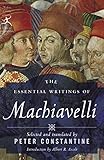All Categories


The Marvels of the World: An Anthology of Nature Writing Before 1700 (Penn Studies in Landscape Architecture)
Share Tweet
Get it between 2024-06-26 to 2024-07-03. Additional 3 business days for provincial shipping.
*Price and Stocks may change without prior notice
*Packaging of actual item may differ from photo shown
- Electrical items MAY be 110 volts.
- 7 Day Return Policy
- All products are genuine and original
- Cash On Delivery/Cash Upon Pickup Available








About The Marvels Of The World: An Anthology Of Nature
Product Description Long before the Romantics embraced nature, people in the West saw the human and nonhuman worlds as both intimately interdependent and violently antagonistic. With its peerless selection of ninety-eight original sources concerned with the natural world and humankind's place within it, The Marvels of the World offers a corrective to the still-prevalent tendency to dismiss premodern attitudes toward nature as simple or univocal.Gathering together medical texts, herbals, and how-to books, as well as scientific, religious, philosophical, and poetic works dating from antiquity to the dawn of the Enlightenment, the anthology explores both mainstream and unconventional thinking about the natural world. Its seven parts focus on philosophy and science; plants; animals; weather and climate; ways of inhabiting the land; gardens and gardening; and European encounters with the wider world. Each section and each of the book's selections is prefaced with a helpful introduction by volume editor Rebecca Bushnell that weaves connections among these compelling pieces of the past. The early writers collected here wrote with extraordinary openness about ways of coexisting with the nonhuman forces that shaped them, Bushnell demonstrates, even as they sought to control and exploit their environment. Taken as a whole, The Marvels of the World reveals how many of these early writers cared as much about the natural world as we do today. Book Description With its peerless selection of ninety-eight original sources dating from antiquity to the dawn of the Enlightenment and concerned with the natural world and humankind's place within it, The Marvels of the World offers a corrective to the still-prevalent tendency to dismiss premodern attitudes toward nature as simple or univocal. About the Author Rebecca Bushnell is the School of Arts and Sciences Board of Overseers Emerita Professor of English at the University of Pennsylvania and author of Green Desire: Imagining Early Modern English Gardens among other books. Excerpt. © Reprinted by permission. All rights reserved. IntroductionIn the first century of the Common Era, the Roman writer Pliny the Elder composed a massive natural history in thirty-seven books covering astronomy, geology, zoology, botany, and minerology and embracing all areas of concern for human existence. The work begins by ecstatically praising earth's indulgence of humankind:She receives us at our birth, nourishes us when born, and ever afterwards supports us; lastly, embracing us in her bosom when we are rejected by the rest of nature, she then covers us with especial tenderness. . . . The water passes into showers, is concreted into hail, swells into rivers, is precipitated in torrents; the air is condensed into clouds, rages in squalls; but the earth, kind, mild, and indulgent as she is, and always ministering to the wants of mortals, how many things do we compel her to produce spontaneously! What odors and flowers, nutritive juices, forms and colors! With what good faith does she render back all that has been entrusted to her!In the same passage, Pliny then condemns those who abuse that earth, complaining that "everything which the earth has produced, as a remedy for our evils, we have converted into the poison of our lives," for "she is continually tortured for her iron, her timber, stone, fire, corn" in our pursuit of superfluous wealth. Then, "inasmuch as all this wealth ends in crimes, slaughter, and war, and that, while we drench her with our blood, we cover her with unburied bones; and being covered with these and her anger being thus appeased, she conceals the crimes of mortals which leads to crime and bloodshed, the expression of earth's anger" (Pliny, Part 1).In this short span Pliny thus highlights the contradictions that inform so much of our experience of the natural world. We wonder at the earth's extraordinary abundance and variety, how "many things" she gen




















